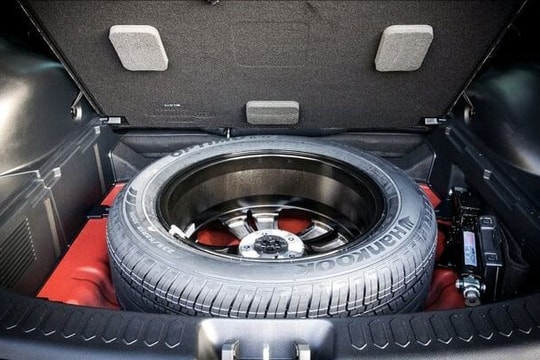7 principles for changing car tires easily and quickly
(Baonghean.vn) - A flat tire or a tire explosion in the middle of the road is an unexpected situation that can easily happen, so drivers need to know the principles of changing spare tires... Below are ways to help you do the job faster, as well as pay attention to avoid risks that may occur during the tire changing process.
1. Stay calm and find a suitable parking place.
 |
When you discover a damaged tire that needs to be replaced, you need to do the following:Turn on your turn signal to ask for the right of way, observe and find a suitable parking space; Avoid parking near curves or on or below slopes, or in places with soft, unstable ground...
When the vehicle has stopped completely, turn on the emergency warning lights to signal others from a distance; put the gear lever in position P, pull the handbrake.
For roads where parking is close to the roadway, danger warning signs or warning objects should be placed at a distance far enough from the vehicle to ensure safety.
2. Chock the wheels, lock the doors, and turn on the hazard lights.
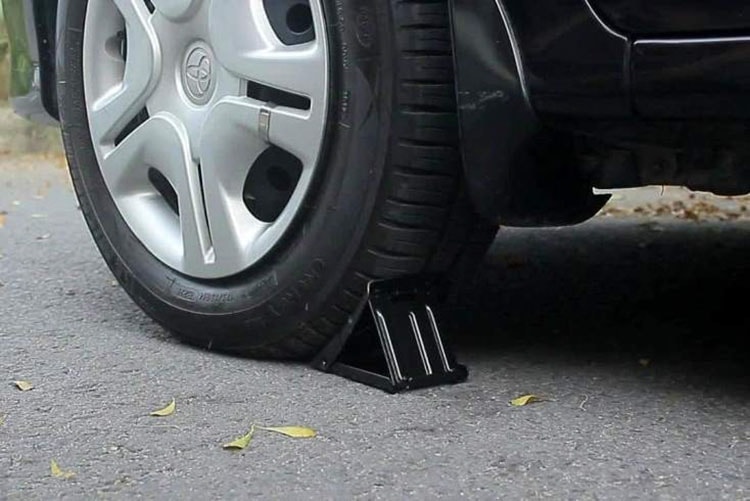 |
When changing the spare tire, the driver needs to park the car on a flat surface but still remember to chock the wheels to prevent the car from moving during the operation.
Turn on the hazard lights or if there is a danger sign, place it a few dozen meters away from the car when you have to park on the street, notify other vehicles to actively reduce speed and pay attention to the steering wheel. Finally, lock all the car doors because when you are focused on changing the tire, it is very possible that thieves will take advantage of it and steal things from the car.
3. Location of car jack
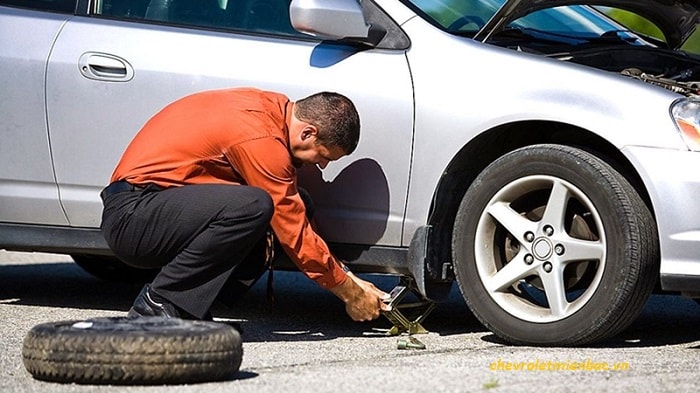 |
To be able to lift the wheel up high to remove it from the axle, the jack must be placed on a sturdy part of the car frame. If you place the jack on the plastic shell of the car, it will cause the plastic shell to be crushed and broken, and you will not be able to lift the car.
Usually, about 15-20 cm behind the front or rear wheel on the frame of the car is marked as the jack position. You can see this position by visual observation or by feeling with your hand. You can also check the position of the jack in the instruction book.
4. Remove the screws diagonally.
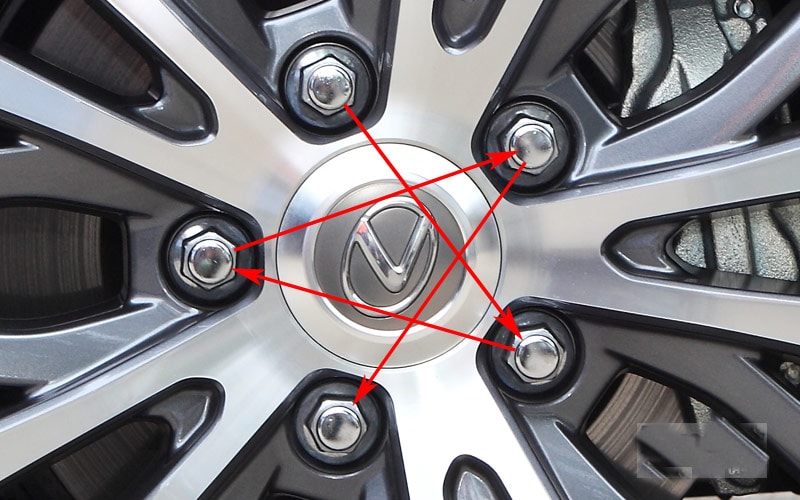 |
The rule when removing and installing wheel bolts is diagonally, like the star pattern in the photo above, not rotating clockwise. Removing or installing bolts diagonally will help the wheel not to deviate to one side but to move in and out evenly in all directions.
5. Screw jacking principle
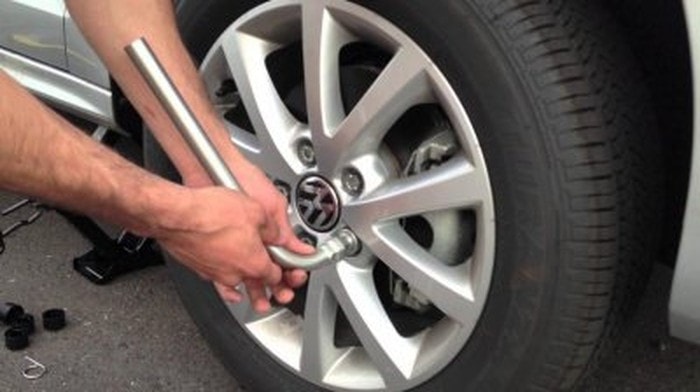 |
The jack screw is the principle that helps you remove the tire most easily and install the tire most tightly. When removing a flat tire, you need to loosen the wheel screws, then lift the jack and unscrew the screws completely. In case you need to install a spare tire, tighten the screws until they are tight, then lower the jack so that the wheel is firmly on the road before tightening them completely and removing the jack.
6. Place the tire under the vehicle
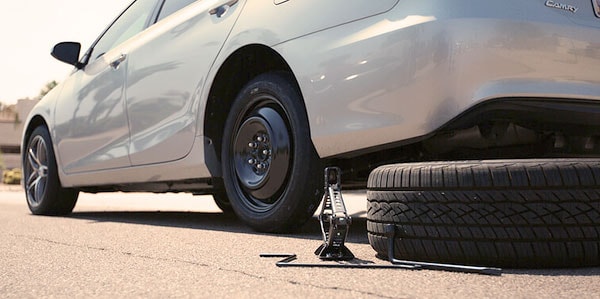 |
When you haven't removed the flat tire, place the spare tire under the car. In case there is a problem when removing the tire and jacking it up, the whole car will fall down and the spare tire will still support it.
7. The spare tire is not the main tire
 |
Spare tires are not usually of the same quality as the main tires. They can only run at a maximum speed of about 80 km/h. Therefore, after replacing the spare tire, you should immediately go to a repair shop to patch the tire and reinstall the main tire.
Some vehicles design spare tires identical to the main tires in size, shape and quality, however, this tire should not be used to replace the main tire. Because the spare tire does not have the same tread wear, it can easily cause uneven effects when cornering, braking suddenly on slippery roads.

